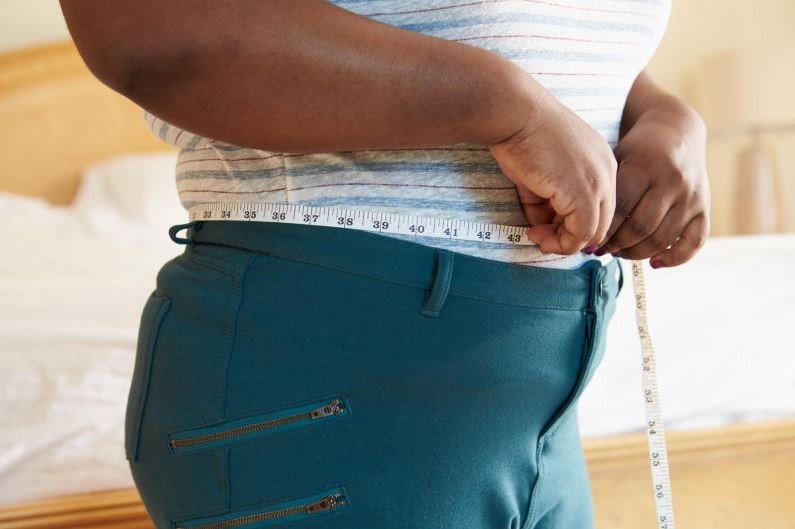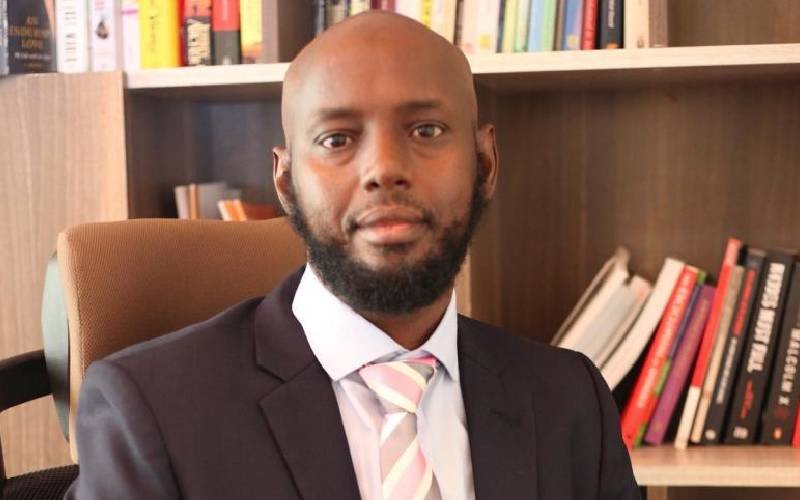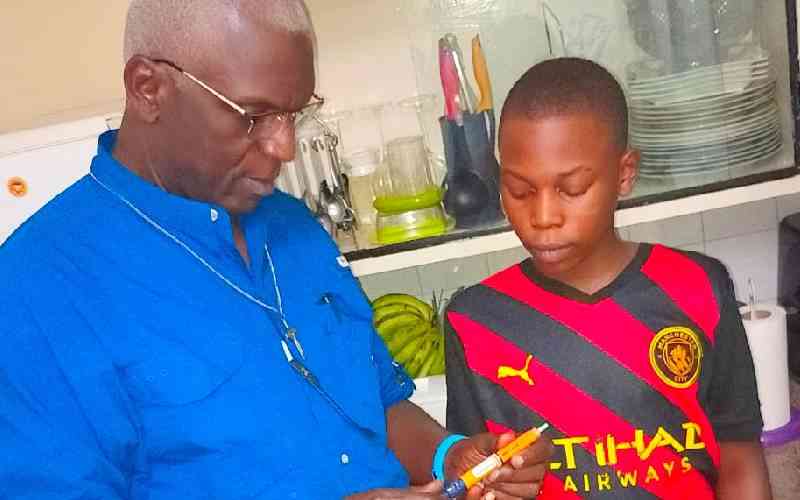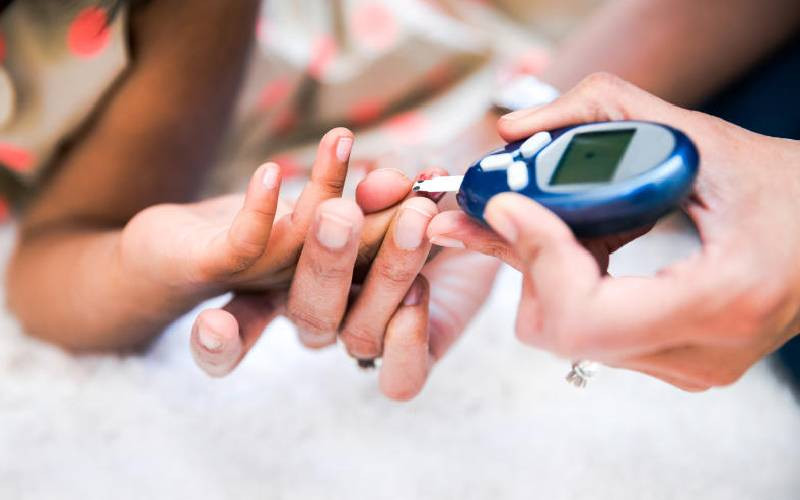
“Weh, umekuwa mnono.”
The words were meant as a joke—casual teasing from a friend outside the canteen. But for 22-year-old Sharon, they felt like a slap.
She laughed it off in the moment, but one could clearly see the words sinking in. It wasn’t the first time. Every mirror she passed became a battleground.
In a culture where weight is mocked freely and casually, many young Kenyans—especially women—carry emotional wounds that can’t be measured on a scale.
Behind the jokes and nicknames lies a mental health crisis that few are talking about.
When I met Sharon for this interview in Nairobi, she spoke in a calm voice, but her eyes kept shifting—as if searching for the right words to describe the pain she has lived with for years.
“It’s the small comments that stick,” she told me, tugging gently at the hem of her loose hoodie. “It comes from the people you love. My aunt once asked if I was pregnant. I just laughed, but that night, I couldn’t look at myself in the mirror without feeling disgust.”
- Meet mental health coach 'Hummingbird,' healing hearts and saving one soul at a time
- 'I want to stop': Young Kenyans open up about struggle with masturbation
- Unmasking the pain behind men's mental health
- One conversation at a time: How Karume is making space for men's mental health
Keep Reading
Sharon says she began wearing baggy clothes to avoid being noticed.
“I stopped eating with friends or even meeting them because they also made fun of me. I don’t think people understand what one ‘mnono’ can do to someone,” she added.
She speaks with a steady voice, but pain flickers in her eyes.
“It wasn’t just classmates,” she said, fiddling with her water bottle. “Teachers also made jokes—things like asking me if I needed two chairs.”
A strained chuckle escapes her lips, quickly swallowed by silence. She shifts slightly in her seat, and for a moment, it’s clear just how deeply those words have carved into her sense of self.
“I started believing them. That my body was the problem.”
The name-calling that began at school trickled into her home life and onto social media, where relatives constantly offered unsolicited ‘diet tips’ and ‘miracle herbs’, reinforcing the message that her worth depended on her size.
Sharon’s story is far from unique—and that’s what makes it alarming.
Across campuses, offices, matatus, dinner tables, and even hospitals, many Kenyans—especially women—are reduced to the number on a scale or the size of their jeans.
While some brush off the jokes with forced laughter, others, like Sharon, internalise the shame until it mutates into self-loathing.
“You just start believing it’s true,” she says, her voice barely above a whisper.
Psychologists warn that such repeated humiliation can trigger long-term mental health issues, such as anxiety, depression, and disordered eating.
Clinical Counselling Psychologist Dr Josephine Muthami says fat shaming has evolved into a pressing public and mental health concern.
She likens it to a form of social stigma, where individuals battling weight issues often face public humiliation.
“They avoid public spaces or wear overly large clothes just to escape the mocking stares and comments,” she says.
According to Dr Muthami, fat shaming has a direct impact on both physical and mental health.The stigma, she explains, can affect how a person thinks, feels, and interacts with the world.
“The person may be feeling bad about why they are fat, overweight or obese—asking themselves questions like, ‘Why can't I be like my friend? Why can't I run like the others?’These thoughts build a sense of dissatisfaction that can last from childhood into adulthood.”
Dr Muthami recalls a teenager who broke down in her office after being mocked for not kicking a football like his peers.
“It was clear his struggle wasn’t just physical. He felt emotionally excluded and ashamed.He hadn’t received a positive compliment in a long time and had lost belief in himself.”
Over time, she says, such experiences can lead to depression, anxiety, eating disorders (such as binge eating or guilt-induced vomiting), and even self-harm.
She also highlights how early the damage can begin.
“Fat shaming can manifest as early as four years old. Young children begin internalising negative beliefs about body image and may start unhealthy dieting even before adolescence,” she says.
“Some may resort to unhealthy coping strategies such as slimming pills, which can harm the body, or even opt for surgery—interventions that may permanently affect their health,” she warns.
She notes that repeated fat shaming affects both the body and the mind, trapping individuals in a cycle of dissatisfaction.
“They constantly yearn to be something they are not—faster, slimmer, more accepted—and that persistent longing becomes a source of mental distress.”
To reduce the psychological harm, she urges society, families, schools, and the media to create safe spaces.
“Don’t shy away from involving professionals. Victims of fat shaming need support, empathy, and encouragement to dress freely, eat healthily, and live without feeling like outcasts.”
“Psychological counselling, support from dietitians, family involvement, and trusted friendships all form crucial support systems,” she adds.
“Nobody should have to go through that pain alone.”
A recent report shows that nearly 29% of Kenyans struggle with body image-related stress. That amounts to over 16 million people nationwide struggling with low self-esteem, anxiety, and appearance-related pressure.
The findings highlight a growing public health concern that mirrors Sharon’s experience—proof that this issue runs deeper than individual stories and requires serious societal reflection.
Until then, many will continue to suffer in silence—mocked into misery, with scars deeper than the skin.
 The Standard Group Plc is a multi-media organization with investments in media
platforms spanning newspaper print
operations, television, radio broadcasting, digital and online services. The
Standard Group is recognized as a
leading multi-media house in Kenya with a key influence in matters of national
and international interest.
The Standard Group Plc is a multi-media organization with investments in media
platforms spanning newspaper print
operations, television, radio broadcasting, digital and online services. The
Standard Group is recognized as a
leading multi-media house in Kenya with a key influence in matters of national
and international interest.











